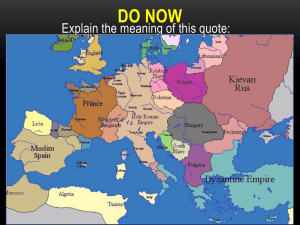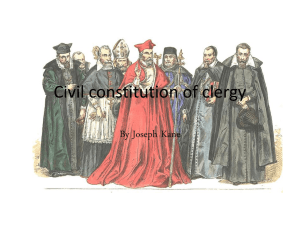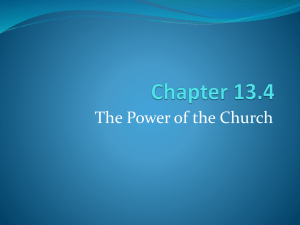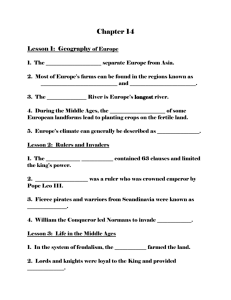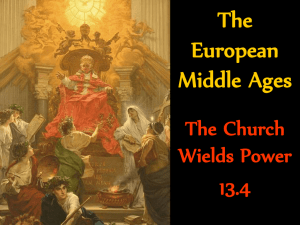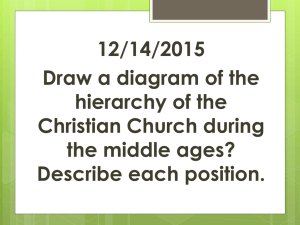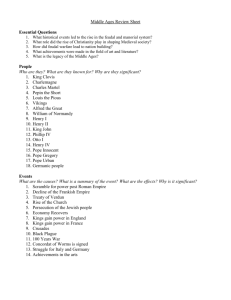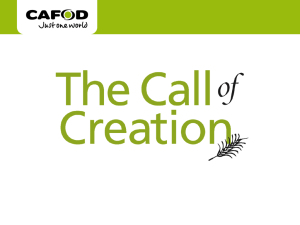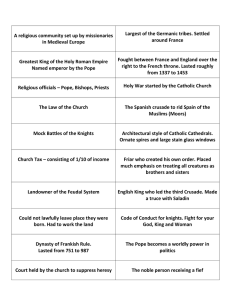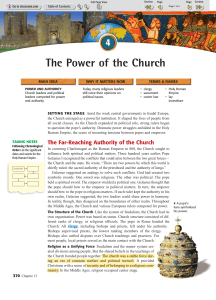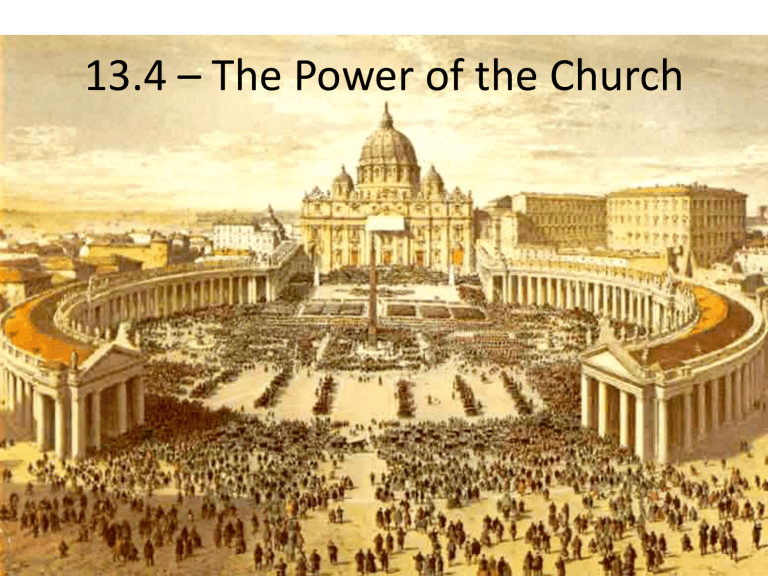
13.4 – The Power of the Church Setting the Stage • Conflict between church & state – Pope Gelasius I: “There are two powers by which this world is chiefly ruled: the sacred authority of the priesthood and the authority of kings.” • The Pope: Control Religious Matters v. the Emperor/Kings: Control Political Matters • The Church and various rulers will compete for ultimate authority The Church: Structure • Power based on status • Head of the Church = The Pope – Authority over all bishops & priests (Clergy) • Bishops supervised priests (lowest level) • Bishops settle disputes over practices & teachings • Local Priests = Main contact with the Church A Unifying Force • The Church unified the division made by feudalism • A stable force during a time of upheaval • People live harsh lives, but could achieve salvation – The Sacraments • Locally: The Church was the religious and social center Church Law • Church law = Canon Law – Marriage & Religion • Courts established to carry law out – Punishments: excommunication & interdict • Popes use excommunication (denial of salvation) to control kings • Continued disobedience by a king = the interdict – The Sacraments & religious services could not be performed in said king’s lands • Laws give the Church near ultimate authority Otto I • Germany: Otto I allies with the Church • Uses the Church to check fellow nobles • Builds a power base through bishops & abbots = monasteries • Invades Italy for the Church = crowned emperor by the pope The Church v. The Holy Roman Empire • Problems: Popes & Italian nobles resent German power in Italy • The Church dislikes lay investiture = kings appoint church officials – 1075: Pope Gregory VII bans process • Emperor Henry IV orders Gregory to step down; Henry excommunicated – 1077: Henry meets Gregory at Canossa, makeup, & is re-instated Concordat of Worms • Popes & Kings continued to fight over lay investiture • 1122: The Emperor & church officials meet at Worms, Germany • Compromise: – The Church appoints bishops – Emperor could veto appointment Frederick I (Barbarossa) • 1st emperor to officially call lands “Holy Roman” • Lands a patchwork of feudal territories • Invades rich cities of Italy & angers the pope • Lombard League forms to combat Frederick – Pope & Italian cities • 1176: Battle of Legnano – Frederick defeated by Italians & their crossbows • 1190: Frederick I dies while on Crusade – Empire shatters into pieces Separation of German States • German kings try to rebuild the empire • Problems with Revival: – Multiple clashes with Italian cities and the pope – Election of the king through princes (weak authority) • Problems lead to a control fewer and weaker lands to establish power Division of the Holy Roman Empire
